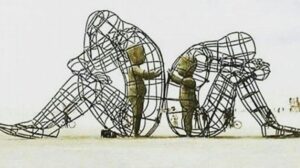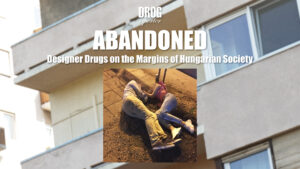The police fights a war on people who use drugs in Hungary
On a rainy Sunday morning in February dozens of young people were dancing in a small club in the outskirts of the city of Debrecen (East-Hungary, Central Europe). They were celebrating the birthday of the club owner who organized a private party with his friends – most of them used some illicit drugs at the club, marijuana, speed or GHB. When dozens of masked policemen showed up in the middle of the party many guests thought that some people dressed like policemen to play a joke on the celebrated owner. However, they had to realize soon that this is far from a joke: the officiers busted the guests, floored and handcuffed everybody. They said somebody called them and said there is drug trafficking in the place. They searched the club, they even broke the toilets.
Two people were taken to the hospital – they overdosed on drugs, said the police to the press, who published it in the evening news. However, when the lawyers of the Hungarian Civil Liberties Union (HCLU) approached the eye witnesses of the raid they said actually nobody overdosed in the party. One guy was kicked so hard by an officier that he could not stand on his legs and the other person who needed emergency care did not even use any drugs, she was just shocked by the police brutality. HCLU provided free legal consultation and representation for the victims of police abuse and made an official complaint at the Independent Police Complaint Commission.
Unfortunately this is not a unique case in Hungary. The parliamentary elections changed the attitudes of police leaders because they try to be in accordance with the expectations of the new Conservative government that has a tough-on-crime approach. Recently the police raided the protest at the Global Marijuana March in Budapest, arresting 7 people for the possession of small amounts of marijuana. HCLU calls people to take action and send an email to the National Commander of the Police and urge him to stop the raids because it is an ineffective and illegitimate way of law enforcement. Our position is in accordance with the statement of the Ombudsman for Civil Rights, who said the police cannot cause disproportionate harm to young people in the name of the enforcement of criminal laws.
Peter Sarosi





